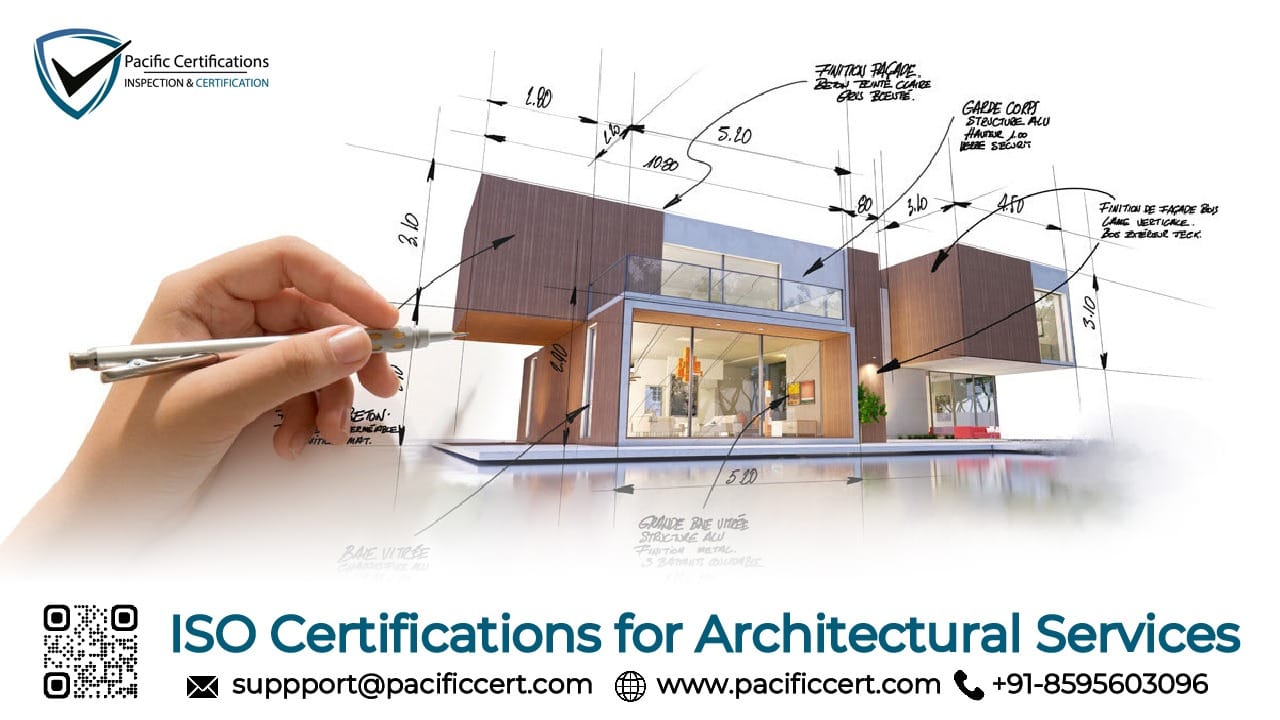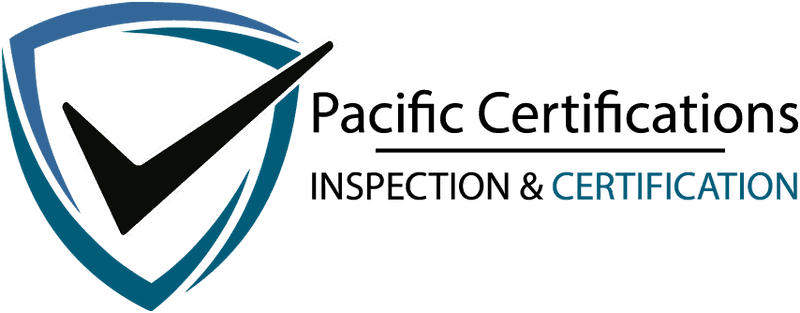ISO Certifications for Architectural Businesses, Requirements and Benefits

Introduction
Architectural firms operate in a demanding environment where design excellence must meet strict regulatory compliance, safety standards, sustainability expectations, and digital project governance. Whether involved in urban planning, commercial buildings, industrial facilities, infrastructure development, or interior design, architectural businesses are accountable for structural integrity, environmental performance, stakeholder coordination, and legal adherence through every design phase.
Modern clients and authorities require demonstrable management systems for quality control, occupational safety, data protection, and climate-conscious design compliance. ISO certifications help architects build organized operational frameworks, reduce design-related errors, strengthen professional credibility, and enhance eligibility for government and international project opportunities.
Reach out to our team at [email protected] for all your certification queries.
In architecture, creativity thrives best when guided by structured systems that protect quality, sustainability, and trust.
Quick Summary
Architectural businesses are increasingly adopting ISO certifications such as ISO 9001, ISO 14001, ISO 45001 , and ISO/IEC 27001 to ensure design consistency, transparency, safe working practices, green compliance, and secure client data management. ISO certification boosts reputation, supports tender eligibility, and demonstrates governance maturity to clients, contractors, and regulatory authorities.
Applicable ISO Standards for Architectural Services
Architectural services encompass a broad range of activities, from planning and designing to construction oversight and project management. Various ISO standards apply to these functions, ensuring compliance with quality, environmental, safety, and information security standards. Below are the common standards:
ISO 9001:2015 – Quality Management System (QMS)
ISO 9001:2015 is the most widely adopted quality management standard. It provides architectural firms with a systematic approach to managing projects, improving client satisfaction, and ensuring regulatory compliance. This certification demonstrates a firm’s commitment to quality, efficiency, and continuous improvement.
ISO 41001:2018 – Facility Management Systems
ISO 41001 is the international standard for Facility Management Systems, providing a framework for organizations to efficiently manage facilities, assets, and support services. It focuses on optimizing resource usage, improving operational performance, and ensuring a safe, sustainable, and productive work environment.
ISO 14001:2015 – Environmental Management System (EMS)
Sustainability is a growing concern in the architectural industry. ISO 14001:2015 helps firms minimize their environmental impact, manage resources efficiently, and comply with environmental regulations. This standard is essential for firms looking to adopt sustainable building practices and reduce their carbon footprint.
ISO 45001:2018 – Occupational Health and Safety Management System (OH&S)
Construction and architectural projects involve various safety risks. ISO 45001:2018 helps organizations implement safety measures to protect employees, clients, and stakeholders from occupational hazards. Compliance with this standard ensures a safe working environment and reduces workplace accidents.
ISO 27001:2022 – Information Security Management System (ISMS)
With increasing digitalization, architectural firms handle sensitive client data, designs, and intellectual property. ISO 27001:2022 ensures that firms have robust cybersecurity measures to protect against data breaches, unauthorized access, and cyber threats.
ISO 19650 – Building Information Modelling (BIM) Standards
For firms that use digital modeling and Building Information Modelling (BIM) technology, ISO 19650 provides a framework for managing information effectively. It enhances collaboration, reduces errors, and improves efficiency in construction projects.
ISO 50001:2018 – Energy Management System (EnMS)
Energy-efficient designs and operations are crucial for modern architectural firms. ISO 50001:2018 helps firms optimize energy consumption, reduce costs, and comply with energy regulations, ultimately contributing to sustainable development.
Click here to find out more applicable standards to your industry
Learn more about our ISO certification services by contacting us at [email protected].
What are the requirements of ISO Certifications for Architectural Services?
Each ISO standard has specific requirements that architectural firms must meet. Below is a summary of the key requirements for each relevant standard:
General requirements:
Define scope covering studio operations, design delivery, BIM management, client interaction, and site inspection activities with documented accountability.
Implement standardized design review processes, error-checking procedures, legal-compliance validation, and stakeholder communication controls.
Conduct risk assessments including project delays, design conflicts, regulatory deviations, field inspection safety, and digital security threats.
Maintain documentation discipline through project files, revision history, drawing approvals, regulatory records, and client correspondence logs.
Ensure staff competency through training, licensing, and continuous professional development aligned to project complexity.
Monitor KPIs related to project delivery timelines, client feedback, defect reduction, and design rework occurrences.
Perform internal audits, management reviews, and corrective actions supported by continuous improvement protocols.
Specific requirements:
ISO 9001:2015 – Quality Management System (QMS) requirements
Establish a quality policy and objectives.
Maintain documented processes and procedures.
Conduct regular internal audits and management reviews.
Ensure customer satisfaction through continuous improvement.
Implement risk-based thinking for better decision-making.
ISO 14001:2015 – Environmental Management System (EMS) requirements
Identify and manage environmental aspects and impacts.
Comply with environmental regulations and legal requirements.
Establish an environmental policy and set sustainability goals.
Implement waste reduction, resource conservation, and pollution control measures.
Monitor and improve environmental performance continuously.
ISO 45001:2018 – Occupational Health and Safety (OH&S) requirements
Identify workplace hazards and implement risk controls.
Develop an occupational health and safety policy.
Conduct regular safety training and awareness programs.
Ensure emergency preparedness and response plans.
Monitor and improve workplace safety through audits and reviews.
ISO 27001:2022 – Information Security Management System (ISMS) requirements
Identify and assess cybersecurity risks.
Implement security policies for data protection and access control.
Ensure encryption and secure storage of sensitive information.
Conduct regular security audits and risk assessments.
Train employees on cybersecurity best practices.
ISO 19650 – Building Information Modelling (BIM) Standards requirements
Standardize the management of digital information in construction.
Establish clear roles and responsibilities for information sharing.
Ensure secure collaboration among stakeholders.
Implement data storage, retrieval, and archiving protocols.
Monitor and optimize BIM workflows for efficiency.
ISO 50001:2018 – Energy Management System (EnMS) requirements
Develop an energy policy and set measurable objectives.
Identify and monitor energy usage and efficiency.
Implement energy-saving measures and technologies.
Conduct regular energy performance evaluations.
Ensure compliance with energy regulations and sustainability goals.
Tip: Begin with mapping your design workflow, from conceptual sketches to as-built documentation, and attach controls to each milestone: internal review sign-offs, regulatory compliance checks, and structured version control.
For ISO certification, contact Pacific Certifications at [email protected].
What are the benefits of ISO Certifications for Architectural Services?
Architectural practices gain substantial operational and commercial advantages through certifications:
Improved design consistency, reduced rework, and faster approval cycles enhance overall project delivery quality.
Stronger competitive position and qualification for government/infrastructure tenders that require ISO-certified service providers.
Enhanced sustainability credibility through verifiable environmental management and green compliance alignment.
Safer working environment for architects and engineers during site visits, measurement surveys, and client interactions.
Secure management of digital assets, BIM repositories, and confidential project information reduces legal and cybersecurity risks.
Higher client confidence and long-term partnerships supported by reliable governance and transparent communication.
The architectural services market is projected to surpass USD 410 billion by 2030 due to rapid urban development, industrial expansion, and smart infrastructure projects. ESG requirements are influencing 60–70 percent of major construction tenders, increasing the need for sustainability-aligned design validated through ISO 14001.
Digital transformation initiatives such as BIM, VR collaboration, and common data environments introduce cybersecurity risks, resulting in rising ISO/IEC 27001 adoption. Clients and regulatory bodies increasingly expect documented quality assurance frameworks, driving ISO 9001 adoption across both boutique architecture studios and multinational design consultancies. The overall trend indicates a shift toward certified governance systems as a qualification standard rather than a differentiator.
How Pacific Certifications Can Help
Pacific Certifications conducts ABIS accredited ISO certification audits for architectural firms committed to strengthening quality systems, sustainability controls, and data governance. Certification demonstrates compliance with international standards and increases professional credibility in a competitive design market. Our audit approach evaluates technical and organizational maturity, focusing on risk-based design management, documentation rigor, digital security, and continual improvement.
Support includes:
Accredited ISO certification audits for design and architectural service providers
Evaluation of design governance, project quality controls, and site safety practices
Review of BIM management and secure handling of confidential client information
Detailed audit reporting with recognized certification decisions under accreditation rules
Ongoing surveillance audits to ensure improvements and compliance retention
If you need support with ISO certification for your Architectural Services business, please contact us at [email protected] or +91-8595603096.
Read More at: Blogs by Pacific Certifications
Author: Pushpinder Kaur

